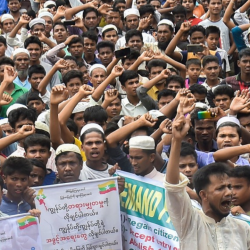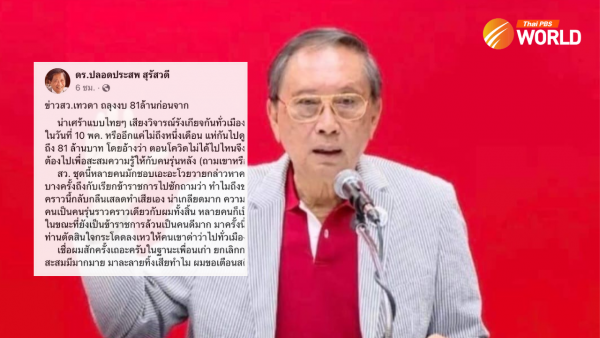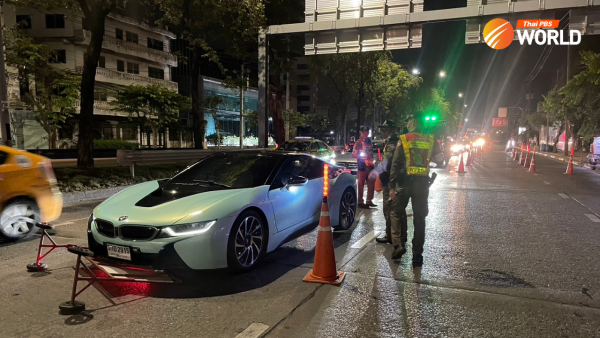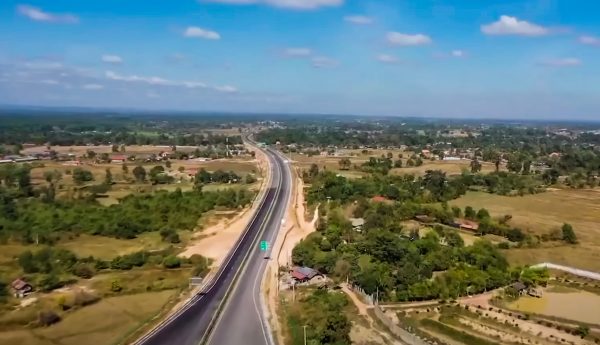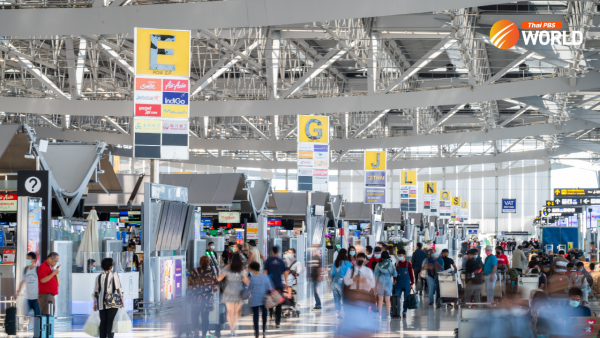Why foreign policy takes a backseat for Thai political parties

Thailand’s major political parties have been paying lip service to foreign policy and its great importance to Thailand, but not many of them are highlighting their policies as part of their party platforms in the 2023 election campaign.
The view among politicians is that statements on foreign policy, no matter how relevant or important to the national interest, are not seductive enough to woo the voters.
The Foreign Ministry also is normally of limited relevance, as politicians prefer economy-related ministries such as Commerce and Transport to implement their policies and meet voters’ demands, if not create projects for their personal interests.
Pheu Thai’s poll plank
Of the major political parties running in the May election, only Pheu Thai Party has taken the initiative to showcase its foreign policy on the party’s official website. The party has pledged to push for a leading role for Thailand in international forums in a bid to generate income from greater trade, investment and tourism to the country.
The party has vowed to make the Thai passport more powerful on the global index, and negotiate with more foreign countries to waive entry visas for Thai passport holders.
The party, which is tipped as the favourite to win the upcoming general election, after sitting in opposition for four years after the 2019 poll, has enlisted 17 clusters of policies, including agriculture and fishery, transportation, public health, macro-economic, tourism, one family-one soft power and Thailand’s creative content agency, education, digital government, constitutional amendment, foreign relations, cybercrime, water management, and LGBTQ rights.
New program to boost sustainable food and health systems in ASEAN
Media indifference
The website of the Democrat Party, the country’s oldest political party, says that one of its 10 principles is to enhance good relations with foreign countries, but that has not translated into any policy formulations to be highlighted in the election campaign.
Kiat Sittheeamorn, deputy leader of the Democrats, argued in a TV talk show that all parties have foreign policies, but not many of them go into the details.
“Foreign affairs always has a significant impact on the daily life of the people. The war in Ukraine, and a free trade agreement with the European Union, all affect the people,” he told Thai PBS’s Tob Jot program recently. The EU and Thailand announced the relaunch of negotiations for a free trade agreement in March 2023, a decade after the process first started.
“We had many public debates on foreign policy during the campaign for the previous election in 2019,” he said, and blamed the media, not eligible voters, for paying less attention to political parties’ foreign policies.
The Democrat Party has a track record of key policy initiatives in foreign affairs, such as “flexible engagement”, created by the late Surin Pitsuwan, a former foreign minister, towards Myanmar in the late 1990s. The current party executives, led by Jurin Laksanawisit, who is the commerce minister in the outgoing government, have not been able to come up with any outstanding foreign policy approaches. Jurin himself did not come off with flying colours when Thailand hosted the Asia Pacific Economic Cooperation summit, which included 21 economies plus special foreign guests, last year.
Kiat, who is also a former deputy chairman of the House of Representatives Foreign Affairs Committee, has sometimes criticized the foreign policies and diplomatic style of the Prayut Chan-o-cha government, notably its stance on the Myanmar crisis. “What is happening in Myanmar is unacceptable, but the government’s stance is so weak,” he said.
Party in no hurry on foreign policy
The ruling Palang Pracharath Party’s Thammasak Wicharaya said foreign affairs were an important part of statecraft and his party has a set of policies, but it has chosen not to highlight them in public yet.
The party has presented before the public six sets of policies covering welfare, social, economic, labor, finance, and human security. The party’s leader and prime ministerial candidate, Prawit Wongsuwan, was well-known and familiar with foreign leaders mostly in ASEAN since he was the defense minister, according to Thammasak.
Palang Pracharath’s foreign policy emphasizes security, national interest, and the principle of non-interference, he said. “In the case of Myanmar, we would not interfere in the domestic affairs of the neighboring country and we prefer dialogue for peace and reconciliation,” he said.
Prayut’s burden
Ruam Thai Sang Chart Party also did not present its foreign policy when it launched 13 sets of policies in late February. The party highlighted its populist policies by topping up money in social welfare schemes for the poor and senior citizens.
The party would list Prayut as its candidate for prime minister to run the government for another term. In the years he has been at the helm of government, Prayut has not shown any perceptible interest in foreign affairs. Prayut’s government was widely criticized for lacking policy initiatives on foreign affairs. It has been perceived as being too close to China and lenient towards Myanmar’s military junta, whose leader Min Aung Hlaing, like Prayut, also came to power by toppling an elected government.
Need for a new direction
Move Forward Party’s Sirikanya Tansakun said her party would soon announce a set of foreign policies, which would be publicized during the election campaign. She said her party would be interested in running the Foreign Ministry if it formed a coalition government after the election.
Thailand’s foreign strategy badly needed a new direction and leadership, she said.
The party would propose a restructuring of foreign affairs, upgrading the Thai Trade Representative to be a full-fledged ministerial position with a full mandate to negotiate with their foreign counterparts, she said, and added that Thai ambassadors should also focus on economic matters.
The opposition party criticized the outgoing government’s policy in censure motion debates in the House of Representatives many times, notably about its stance towards the Myanmar crisis, she said.
“We criticized the government for turning a blind eye when a Myanmar MiG-29 jet fighter violated Thailand’s air space and their arms conflict spilled over to hurt our people. We should not push Myanmar refugees back into danger in their home country. The non-interference principle must be reviewed in accordance with new circumstances, she said, and noted, “The principle of ASEAN consensus also must be revised.”
By Thai PBS World’ Regional Desk


